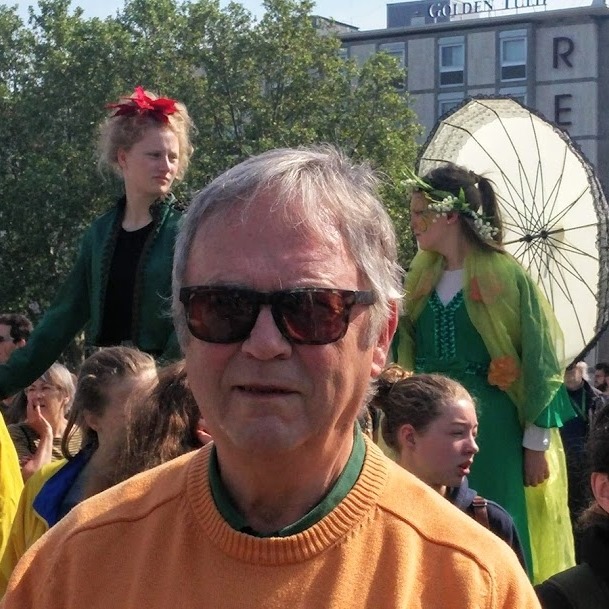It seems the knives were out and waiting for the "withdrawal thesis," as Chomsky and others have continued to call it, to hit the movie theaters and the bookstores, the "thesis" being not the plan and policy described in PP Gravel but JFK's putative intention to withdraw no matter what.
Peter Dale Scott, who as one of the authors of The Politics of Escalation had already said all that needed to be said in 1966, laid the seed for the debate that broke out twenty years later in his 1972 essay in volume 5 of PP Gravel, "Vietnamization and the Drama of the Pentagon Papers" (see also here). In this essay he argues that Johnson's NSAM 273, which was partially reproduced in PP Gravel and PP NYT but not declassified until June 8, 1976, signed four days after the assassination, already shows a reversal of JFK's withdrawal policy.
John Newman confirms Scott's analysis in JFK and Vietnam, and adds to it his contention that the draft of NSAM 273 written by McGeorge Bundy for Kennedy the day before the assassination, shows the difference even more clearly. The McBundy draft, curiously enough, was declassified on Jan. 21, 1991, just in time for the Stone movie and Newman's book.
Chomsky has argued with undiminished vigor against the "withdrawal thesis," which by now has been fully conflated with what should be called the "withdrawal regardless of victory thesis" advocated by Scott and Newman, and more recently Galbraith (see here, here, here and here). He wavers only slightly in the preface to the 2015 edition of Rethinking Camelotin saying that recently released material "makes it even more clear that the tentative withdrawal initiative was primarily McNamara's" and crediting Marc Selverstone (cf. The Kennedy Withdrawal, 2022) with this "plausible" conclusion, no doubt because:
Selverstone also gently refutes claims about Kennedy's hidden intentions - so deeply hidden that there isn't a particle of evidence for them, though there is plenty of evidence refuting them. But Camelot wish-fulfillment is likely to be as resistant to fact and logic as the rather similar Reagan worship at the other extreme of the political spectrum.
I had been calling attention to what I called the "false debate" between Newman and Chomsky since 1994, when I sent an "Open Letter to John Newman", to which he never replied, but see Michael Parenti's reply and my reply to Parenti. I sent copies of these letters to Chomsky, who seemed particularly irritated by my letter to Newman, accusing me (Feb. 9, 1995) of "misquoting" from Rethinking Camelot "with your usual consistency, which also extends to your treatment of the historical and documentary record".
The false debate has continued until today (I think Selverstone is the latest installment) about what Kennedy was "really thinking" and what he would have done if he had lived. All of this sleuthing and conjecture, fed by periodic releases of classified material to grow the already gargantuan maze of government documents, plays right into the hands of the CIA, which thrives on "Deception, Intrigue, and the Struggle for Power", as Newman subtitled his book. Former CIA director William Colby gushed his approval on the jacket:
A brilliant, meticulously researched and fascinating account of the decision-making which led to America's long agony in Vietnam. Mr. Newman has added to our history - and hopefully to our modesty - as we approach the decisions of the future.
Quite an endorsement from a former head of the agency that Kennedy wanted to "splinter... in a thousand pieces and scatter... to the winds" (according to the NYT, April 25, 1966, p. 20) and that, according to many, murdered him (e.g., Jim Garrison, On the Trail of the Assassins, 1988; James Douglass, JFK and the Unspeakable, 2008; Mark Lane, Last Word, 2011; David Talbot, The Devil's Chessboard, 2016).
The withdrawal plan was never a "thesis" but a fact and a policy, clearly described in PP Gravel, that began under Kennedy and ended, at the very latest (formally), on March 27, 1964:
Thus ended de jure the policy of phase out and withdrawal and all the plans and programs oriented to it. Shortly, they would be canceled out de facto. [Vol. 2, Ch. 3, p. 198.]
PP NYT seems to have been quite aware of the controversy that would erupt about the withdrawal policy. Hedrick Smith writes on p. 114 (see here for whole page):
Despite the tens of thousands of words in the Pentagon account of the Kennedy Administration, backed by scores of documents, the study does not provide a conclusive answer to the most vigorously debated question about President Kennedy's Vietnam policy since his death in November, 1963: If President Kennedy had lived until 1965, would he have felt compelled by events, as President Johnson was, to undertake full-scale land war in South Vietnam and an air war against the North? [P. 114.]
"Most vigorously debated question"? Really? Even then? Maybe I missed it, but I don't know of any debate at all about this, much less a "vigorous" one, until Stone's JFK brought it into the movie theaters.
What Smith writes here seems fair enough, but the paragraphs that follow demand scrutiny. (There is nothing like them in PP Gravel.) It may be just bad writing, but I doubt it.
First Smith says that in 1961 Kennedy was "distracted" and "restrained" by other crises (Berlin, Cuba, Laos) in a way that Johnson later was not, and that Diem did not push Kennedy "so aggressively for American escalation" as Gen. Khan did Johnson.
Next Page 1 | 2 | 3 | 4 | 5 | 6
(Note: You can view every article as one long page if you sign up as an Advocate Member, or higher).





